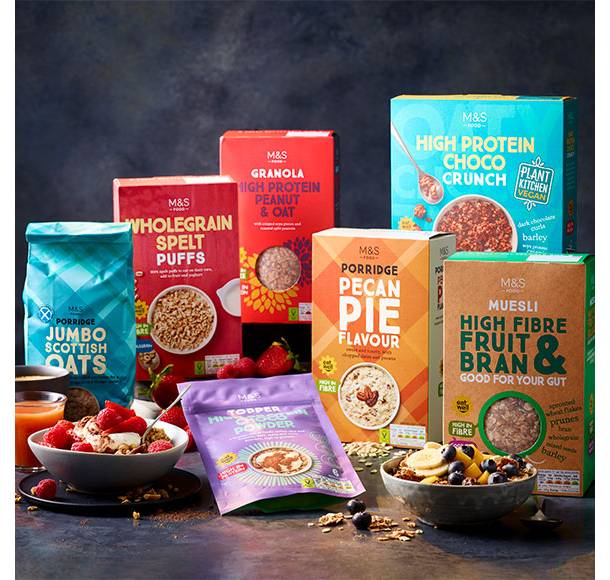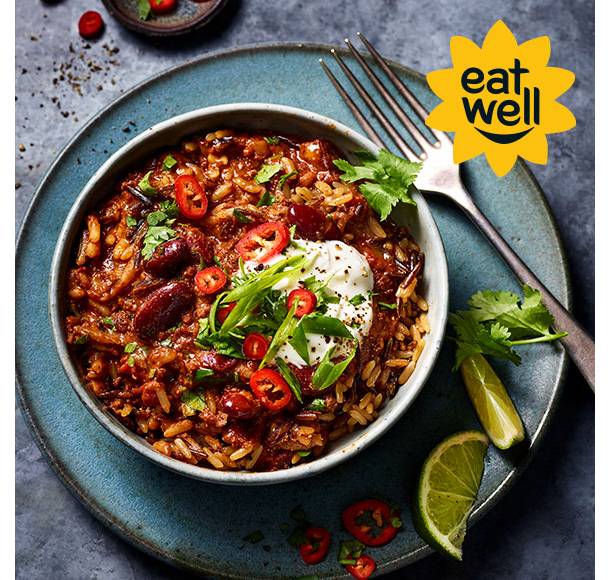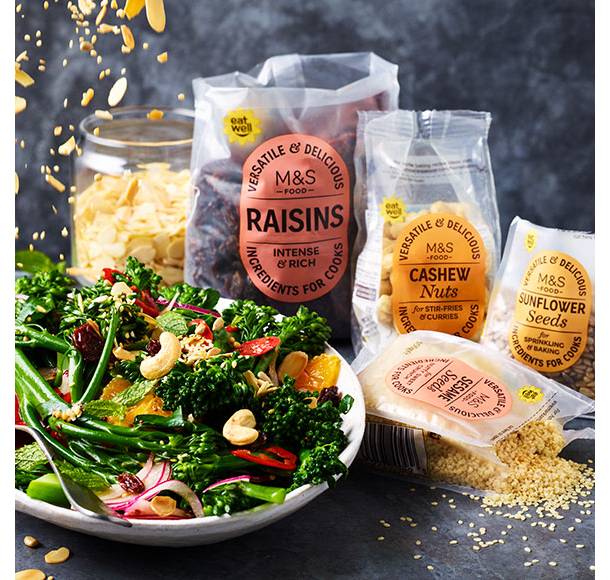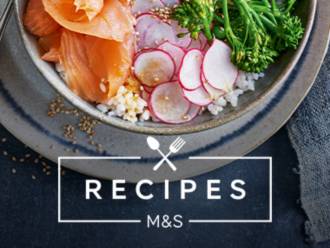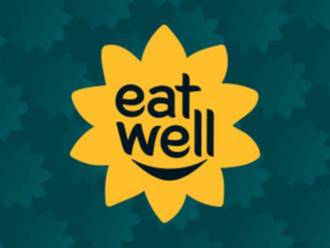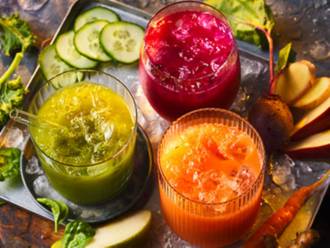A healthy and balanced diet with M&S Food
Grouping foods into what’s healthy and what’s not can be simple, but when it comes to a balanced diet, it’s better to look at your approach as a whole. No single food can give you all the nutrients you need, so it’s time to mix it up and add variety to get the most from your meals.
Grace Ricotti, head of nutrition at M&S Food says: “At M&S, we believe the key to a balanced diet is providing delicious and healthy choices with for every occasion. It’s not about restriction and restraint but providing more nutritious foods for our customers, and never compromising on quality."
What is healthy eating?
Healthy eating means getting the right balance of energy and nutrients within our diet to allow us to live healthy lives and reduce our risk of disease.
Balancing energy
Typically, women need around 2,000 kcal a day while men need around 2,500 kcal, depending on starting weight, height, age and activity levels. Therefore, it’s important to gain a balance of the right type of food in our diet to live healthy lives.
Eat Well with M&S Food
At M&S we use the Eat Well seal of approval, a flower on pack to signpost healthy choices. Each product meets evidence-based nutrition criteria, provides health benefits and supports the principles of a balanced diet, so you can feel confident you’re making a healthy choice.
Look out for nutrition labelling on the front of our products to easily find out the amount of calories in your food.
Easy tips for a healthier diet from M&S Food
• Eat more fruit and veg – whether it’s five portions or 30, increasing your fruit and vegetable intake helps to achieve a healthy balanced diet through vitamins and minerals. Choosing a variety of types and colours can help reduce risk of deficiency in the diet and increase fibre intake.
• Choose wholegrain carbohydrates – around one third of your daily diet should be starchy carbohydrates. Bread, rice and pasta are all good sources of energy and choosing wholegrain varieties helps to increase your fibre intake.
• Choose lean protein – whether it’s beans, pulses, fish, eggs or lean meat, lean protein is great for a healthy diet. Including dairy or fortified dairy alternatives in your diet is a good source of vitamins and minerals.
• Aim for two portions of fish a week – with one being an oily fish such as salmon, mackerel, or sardines, for your quota of heart-healthy omega 3.
• Manage the amount of saturated fat, sugar, and salt in your diet – choose items which have mostly green and amber food labelling to help you.
• Drink plenty – 6-8 glasses a day (around two litres) of fluid, ideally water. Or opt for sugar-free drinks including tea, coffee, herb or fruit teas, milk or fortified dairy alternatives. One 150ml glass of fruit juice or smoothie counts too.
• Get active every day – anything that gets your heart beating faster, whether it’s walking, gardening or dancing. Being active also helps improve sleep and mood, and helps to relieve stress.
